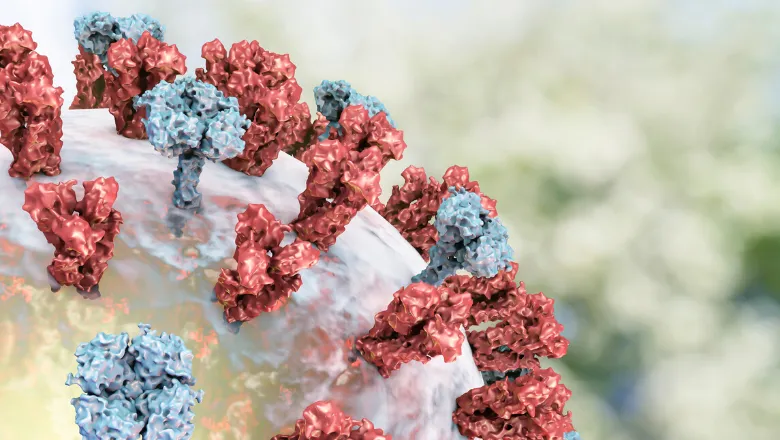We are aiming to understand the beliefs and attitudes underpinning people’s behaviour in these areas. This will inform the development of messaging to ensure people are making best use of the services that are available.
Jo Waller, Reader in Cancer Behavioural Science
17 July 2020
Researchers from the Faculty of Life Sciences & Medicine work on collaborative study to assess attitudes to cancer diagnosis during the pandemic
Researchers from the School of Cancer & Pharmaceutical Sciences are working on a cross-university UK-wide population study to gain insight into public attitudes towards cancer during this time.

The impact of COVID-19 on UK public attitudes towards cancer is likely to be significant. This could translate into missed screening appointments, delayed help-seeking for symptoms, and later-stage cancer diagnoses. Dr Jo Waller, from the School of Cancer & Pharmaceutical Sciences is working on a cross-university study to measure attitudes and behaviours related to the early diagnosis of cancer during the global pandemic.
It is apparent that cancer outcomes are being adversely affected by the coronavirus pandemic. Over the last few months, fewer people have been referred urgently for investigation of possible cancer symptoms and Cancer Research UK estimates over 2 million people have missed out on routine screening for breast, bowel or cervical cancer. The reasons are complex but likely include the pausing of most screening services, people being concerned about visiting primary care for fear of catching COVID-19, perceptions that the NHS hasn’t been ‘open’ for non-COVID health problems and concerns about overburdening the health service.
This research will measure attitudes and behaviour across several domains: cancer symptom presentation; screening; smoking; diet; physical activity.
Led by the University of Cardiff, with Cancer Research UK and the University of Surrey, Dr Waller and her team are collaborating on a UK-wide population survey of around 3,500 adults to gain insight into public attitudes towards cancer during this time. Follow-up qualitative interviews will be conducted to further understand the contextual influences on cancer attitudes and how these have affected screening and help-seeking behaviour.
It’s important that we understand how people have thought about the relative risks of coronavirus and cancer, as well as their perceptions and experiences of NHS services during the pandemic.
Jo Waller, Reader in Cancer Behavioural Science
Aiming to have preliminary findings by the Autumn, a second survey will follow in the early part of 2021. The results of this project will then be shared with the NHS, public health agencies, third sector organisations, and the media to help create new and relevant messaging to combat the issues that are clearly at play here.
